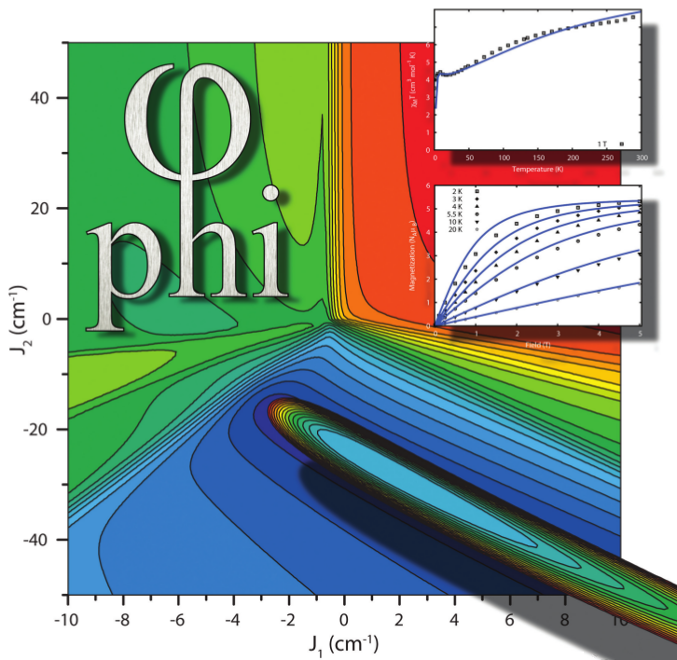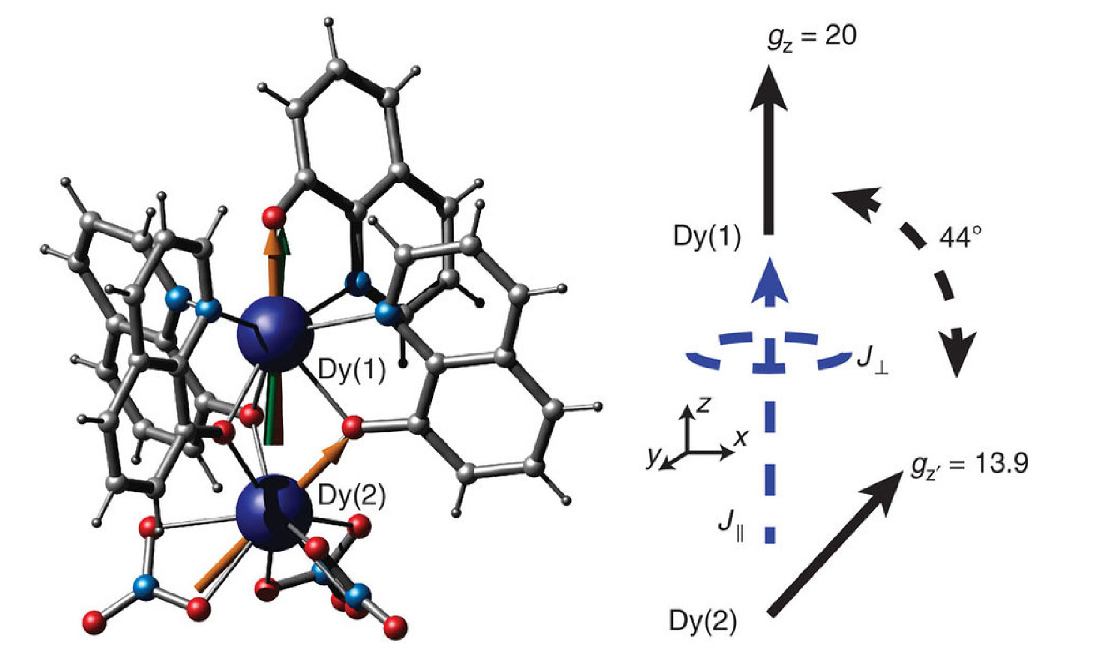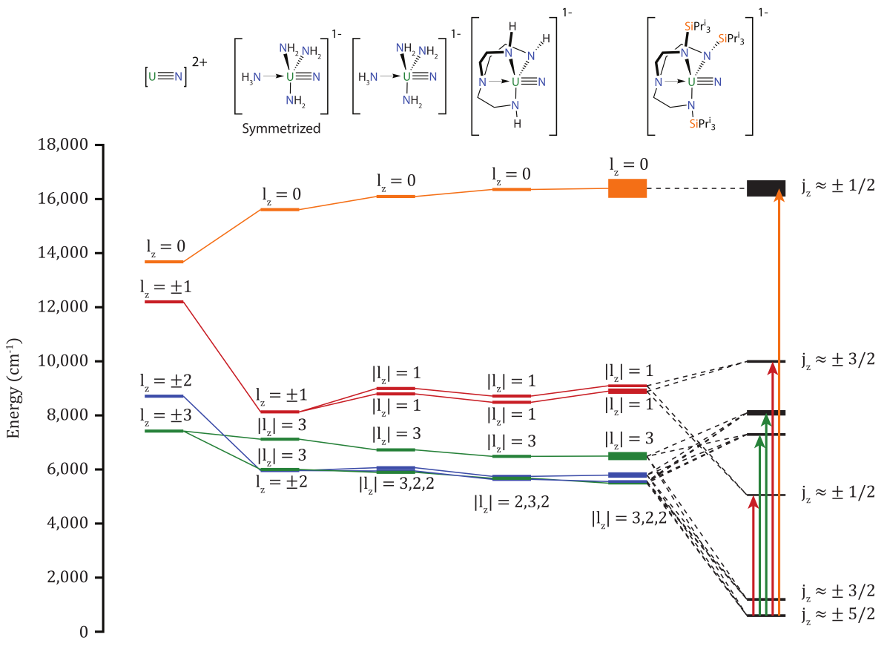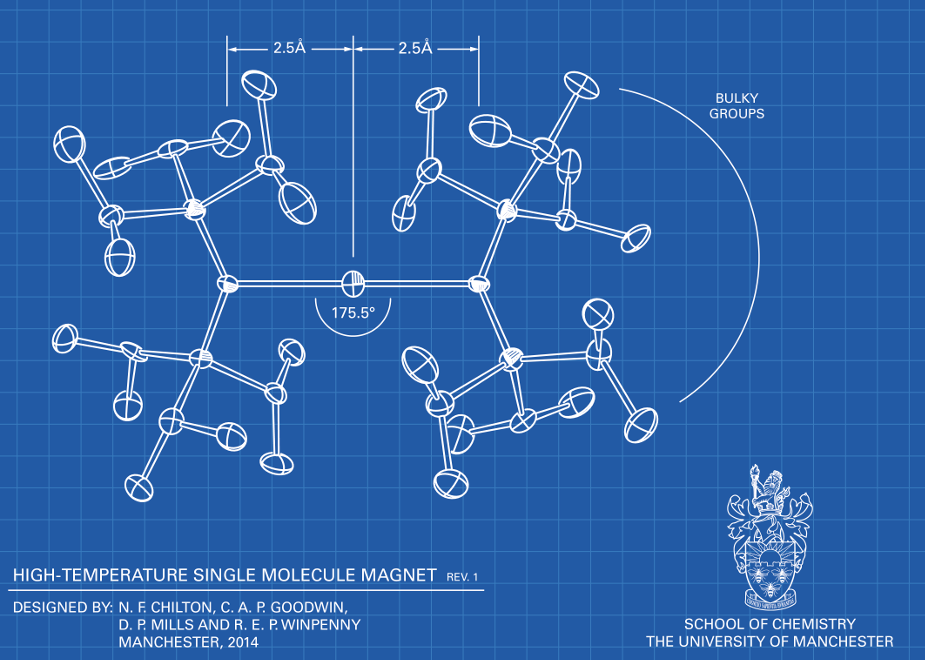
Design of high-temperature single-molecule magnets
The volume of stored digital information is increasing exponentially, and the economic and environmental costs could be mitigated by increasing data densities by orders of magnitude. In place of standard storage media, data could potentially be stored in individual molecules on the nanoscale using single-molecule magnets (SMMs). Molecular data storage could dramatically increase data densities, but memory must persist at economically viable temperatures. We have pioneered approaches for designing some of the best-performing SMMs known, and we are now working to understand in more detail the origins of magnetic relaxation (the process by which magnetic information is lost) to further improve magnetic memory in molecules.
- The first near-linear bis(amide) f-block complex: a blueprint for a high temperature single molecule magnet
- Design Criteria for High-Temperature Single-Molecule Magnets
- On Approaching The Limit of Molecular Magnetic Anisotropy: A Near-Perfect Pentagonal Bipyramidal DyIII Single-Molecule Magnet
- Molecular magnetic hysteresis at 60 kelvin in dysprosocenium
- Ultrahard magnetism from mixed-valence dilanthanide complexes with metal–metal bonding
- Soft magnetic hysteresis in a dysprosium amide-alkene complex up to 100 K
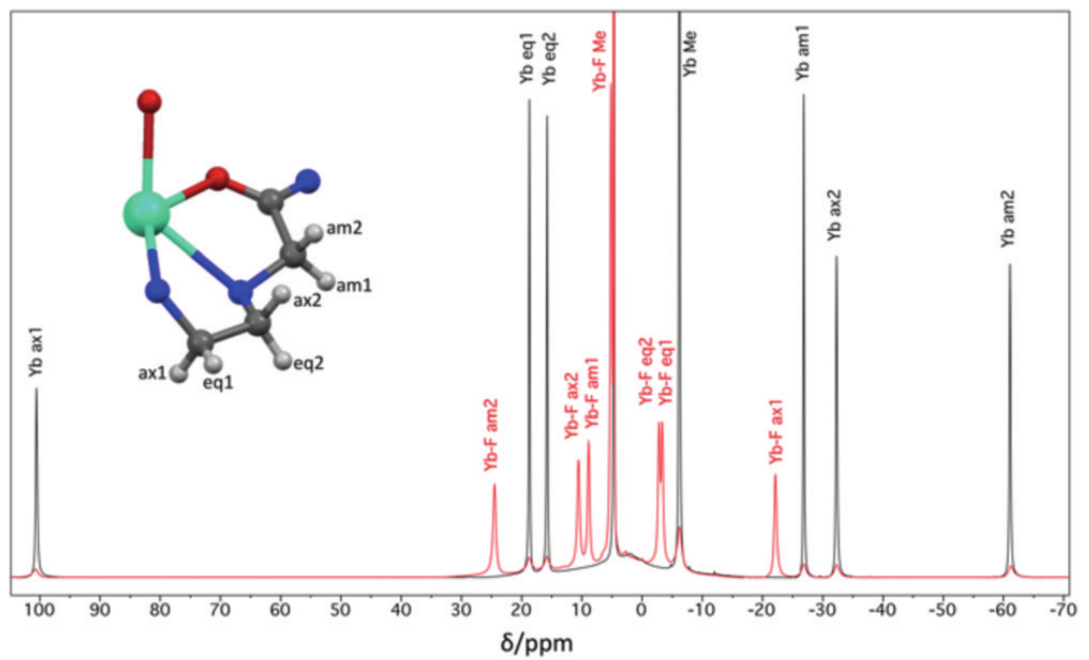
Understanding paramagnetic MRI contrast agents
Non-invasive bioimaging has revolutionised healthcare, and developing more sensitive and informative probes is paramount for early detection in a wide range of diseases. We are investigating prototype MRI contrast agents using a range of measurements and computational techniques to understand how molecules can be designed to elicit more diagnostic information from a single MRI scan.
- Spectroscopic and crystal field consequences of fluoride binding by [Yb.DTMA]3+ in aqueous solution
- Rationalisation of anomalous pseudo-contact shifts and their solvent dependence in a series of C3-symmetric lanthanide complexes
- Lanthanide-induced relaxation anisotropy
- Unravelling the Complexities of Pseudocontact Shift Analysis in Lanthanide Coordination Complexes of Differing Symmetry
- How the Ligand Field in Lanthanide Coordination Complexes Determines Magnetic Susceptibility Anisotropy, Paramagnetic NMR Shift and Relaxation Behaviour
- Structural evolution of paramagnetic lanthanide compounds in solution compared to time- and ensemble-average structures
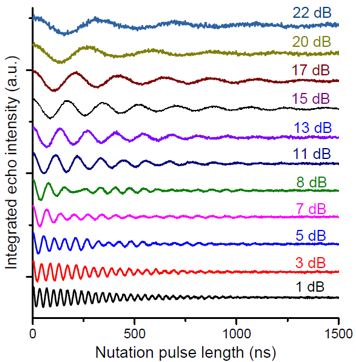
Designing molecular spin qubits for quantum information
Of the many potential implementations of quantum bits (qubits), molecular spin qubits are particularly favourable: e.g. they have a low fabrication cost, are perfectly identical and are chemically tuneable. Furthermore, they can be engineered to be robust against magnetic noise and exhibit quantum coherence times rivalling solid state qubits. We are investigating how they can be protected from other environmental degrees of freedom such as vibrational noise, such that they maintain their coherence properties in device-like architectures. Additionally, we are exploring how molecular spin states can be coherently controlled using electric field pulses, which could facilitate single-qubit gates at the nanoscale.
- Measuring spin···spin interactions between heterospins in a hybrid [2]rotaxane
- Engineering electronic structure to prolong relaxation times in molecular qubits by minimising orbital angular momentum
- Analysis of vibronic coupling in a 4f molecular magnet with FIRMS
- Ab Initio Design of Molecular Qubits with Electric Field Control
- Inverse Design of Molecular Qudits for Quantum Circuitry
